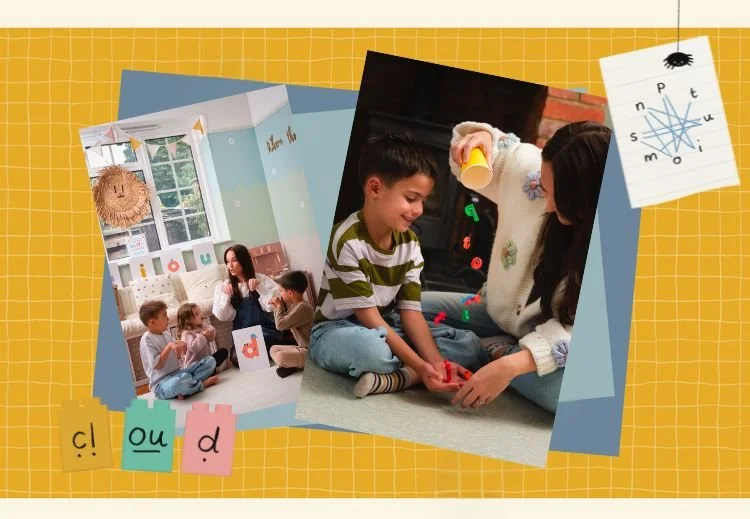Learning through Play
Play is not only fun but also a powerful way for children aged 4 and over to develop important skills. Through playful activities, children can strengthen fine motor control, mathematics, reading, writing, problem solving and social skills. Here are 15 engaging activities that combine enjoyment with learning.
-
How to play: Create a simple map with numbered clues or shapes. Children follow the map, counting steps or matching shapes to find treasure. This reinforces number recognition and problem solving.
-
How to play: Use Lego or building blocks to create patterns, shapes or simple structures. This encourages spatial awareness, fine motor control and early geometry skills.
-
How to play: Hide letter cards around a room or garden. Children search for letters, then practise sounding them out or forming words. This develops early literacy and phonics.
-
How to play: Draw a hopscotch grid with numbers and ask children to jump while calling out sums or sequences. This supports counting, addition and gross motor skills.
-
How to play: Use dice with pictures or words to inspire short stories. Children practise creative writing, sentence formation and imagination.
-
How to play: Provide objects of different shapes and sizes. Children group and classify them, exploring attributes like size, colour and shape. This develops early maths and observation skills.
-
How to play: Use sand, rice or shaving foam for children to trace letters or numbers with their fingers. This strengthens fine motor skills and letter recognition.
-
How to play: Bake simple recipes together. Children measure ingredients, count items, and follow steps, combining numeracy, sequencing and practical life skills.
-
How to play: Time how long it takes to complete a jigsaw or matching puzzle. This promotes problem solving, concentration and hand-eye coordination.
-
How to play: Give children materials like blocks, straws or cardboard to build a bridge that can hold a small toy. This encourages creativity, engineering thinking and problem solving.
-
How to play: Create a bingo card with sight words or vocabulary words. Call them out and have children mark them. This improves reading skills and listening comprehension.
-
How to play: Use beads to create patterns on string or pipe cleaners. Children practise sequencing, colour recognition and fine motor skills.
-
How to play: Provide rulers, measuring tapes or containers. Children can measure objects, compare lengths, or pour water to explore capacity, introducing early maths concepts.
-
How to play: Simple experiments like vinegar and baking soda volcanoes or floating/sinking tests encourage observation, prediction and problem solving.
-
How to play: Set up a pretend shop or post office with price tags, letters or parcels. Children practise counting, writing, reading signs and social interaction.








